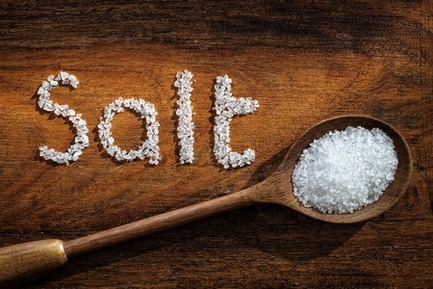
“Everyone will be salted with fire. Salt is good, but if it loses its saltiness, how can you make it salty again? Have salt among yourselves, and be at peace with each other” (Mark 9:49-50).
The passage found in Mark 9 regarding Christ’s words about salt is usually explained or expounded by simple reference to the fact that biblically salt was a symbol of preservation or purity, but if we look closely, these verses actually vary the significance of salt by stressing different meanings.
In Mark 9:49 the words “Everyone will be salted with fire” clearly refers to purification, but when we move to verse 50a the statement “Salt is good, but if it loses its saltiness, how can you make it salty again?” just as clearly refers to the disciple’s commission to serve as “salt” of this world (Matthew 5:13) – a function of making the world palatable to God.
But in the final statement using salt as a symbol: “Have salt among yourselves, and be at peace with each other” (Mark 9:50b), neither of these previous meanings fits the saying. “Have salt among yourselves” does not make sense in terms of purification or making the world palatable – how would either meaning relate to being at peace with one another?
It is most likely that in the latter part of verse 50 Jesus’ comment refers to the fact that in ancient Judea and in the wider ancient Near East, salt was used extensively in making covenants and treaties between individuals or groups. We see this in biblical verses such as:
Numbers 8:19: “Whatever is set aside from the holy offerings the Israelites present to the Lord I give to you and your sons and daughters as your perpetual share. It is an everlasting covenant of salt before the Lord for both you and your offspring.”
2 Chronicles 13:5: “Don’t you know that the Lord, the God of Israel, has given the kingship of Israel to David and his descendants forever by a covenant of salt?”
Leviticus 2:13: “Season all your grain offerings with salt. Do not leave the salt of the covenant of your God out of your grain offerings; add salt to all your offerings.” This last verse is usually said to be based on the purificatory aspect of salt, but the text says specifically the salt is the “salt of the covenant.”
To “eat salt together” meant to make peace and enter into a covenant – or what we call today a “peace treaty” with someone. In Acts 1:4, where Jesus met with the disciples after his resurrection, most translations say he was “with” the disciples, but the Greek is literally “being together salted” – perhaps especially significant after the disciples had only recently deserted and disowned him.
Now, going back to Mark 9:50, the context of Jesus’ words in that verse is clear. The disciples were arguing about who among them would be the greatest, and Jesus had to rebuke them for this attitude (Mark 9:33-35). But his words recorded at the end of the chapter spoke to the lack of peace between the disciples caused by this – and doubtless other – arguments. In telling the disciples to “have salt among yourselves and be at peace with each other” (vs. 50), Jesus was probably urging them to use the symbolic salt of covenant relationship – specifically of a covenant of peace – and thus to be at peace with one another.
We do not always know when the writers of the Gospels bring together related sayings that may have been spoken at different times, but which share a common theme. That could be the case in Mark 9 where we see different uses of the symbolism of salt, but it is also possible that Jesus simply varied the meanings of the symbol as he occasionally did in other instances. In either case, the reference to having “salt among yourselves” seems to be clearly related to the role of salt in covenants and treaties of peace.
 RSS Feed
RSS Feed
